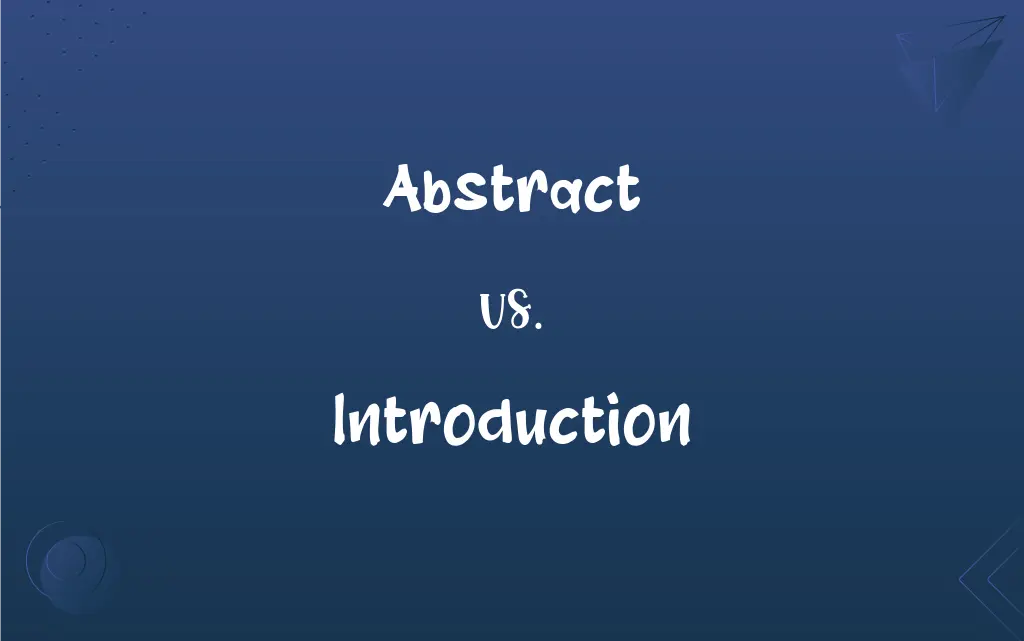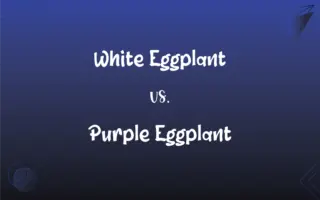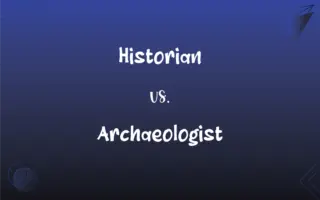Abstract vs. Introduction: What's the Difference?
Edited by Aimie Carlson || By Harlon Moss || Updated on October 21, 2023
Abstract is a summary; introduction sets the context.

Key Differences
An abstract is a brief summary of the main points or the essence of a work, while an introduction serves as a doorway into the context or background of that work.
In a research paper, an abstract gives a snapshot of the entire document, encapsulating the objectives, methodology, findings, and conclusions. Conversely, an introduction establishes the problem statement, highlights its significance, and indicates how the research addresses it.
When reading an article or a thesis, the abstract allows readers to quickly ascertain the paper's purpose and its results without delving into the entire document. The introduction, however, immerses the reader into the topic, providing necessary background and leading them towards the main content.
While the abstract typically stands alone at the beginning of a document and can be used as a separate entity in databases or conference proceedings, the introduction is integrally connected to the body of the text, setting the stage for what's to come.
It's often recommended to write the abstract last, after the entire document is completed, ensuring it captures all essential points. The introduction, however, is usually penned earlier, providing a roadmap for both the writer and the reader.
ADVERTISEMENT
Comparison Chart
Purpose
Summarizes the main points of a work.
Sets the context and provides background for the topic.
Position
Found at the beginning, can stand alone.
Found at the beginning, leads into the main body of the text.
Length
Typically shorter, concise.
Can be more detailed and longer.
Content
Contains objectives, methodology, findings, conclusions.
Contains problem statement, significance, and background.
Writing Timing
Often written last to encapsulate the entire content.
Written earlier to guide the writer and reader.
ADVERTISEMENT
Abstract and Introduction Definitions
Abstract
A theoretical concept or idea.
His thoughts on happiness remained abstract and not grounded in reality.
Introduction
The act of bringing someone or something into notice or use for the first time.
The introduction of the smartphone changed communication forever.
Abstract
A brief summary of a document.
The abstract provided a concise overview of the research paper.
Introduction
The act of formally presenting one person to another.
At the gala, I had the pleasure of an introduction to the mayor.
Abstract
Not concrete or based on specific instances.
She had an abstract notion about the workings of the universe.
Introduction
To insert or implement something new.
They plan to introduction a new software update next week.
Abstract
To remove or take away.
The artist could abstract colors from natural substances.
Introduction
A basic guide or instruction on a subject.
I bought a guitar introduction for beginners.
Abstract
To summarize or extract the essential details.
She will abstract the main ideas from the article.
Introduction
The initial section of a book or document.
The introduction provides a background to the story.
Abstract
Considered apart from concrete existence
An abstract concept.
Introduction
The act or process of introducing or the state of being introduced.
Abstract
Not applied or practical; theoretical.
FAQs
What is an abstract in a research paper?
An abstract is a brief summary of the main points of a research paper, including its objectives, methodology, findings, and conclusions.
Where is an introduction positioned in a document?
The introduction is positioned at the beginning of a document, leading into the main body of the text.
Does the introduction contain the conclusion of the research?
No, the introduction sets the context, while conclusions are typically found in the end or within the abstract.
Can the abstract stand alone outside of the full document?
Yes, the abstract can stand alone and is often used as such in databases or conference proceedings.
Is it mandatory for every research paper to have an abstract?
While highly recommended for clarity and accessibility, not all research papers mandate an abstract. It depends on the publication guidelines.
Can an abstract be theoretical?
While the term "abstract" can refer to theoretical concepts, in the context of documents, it's typically a summary.
Is the introduction the same as the preface?
No, a preface typically addresses the book's genesis, its publication history, and other matters, while an introduction deals with the subject matter.
Is it important to revise the introduction after writing the main content?
Yes, revisiting the introduction ensures it aligns with the content and appropriately sets the context.
Can an abstract be a verb?
Yes, "abstract" can be a verb meaning to summarize or extract essential details or to remove.
What's the main difference between an abstract and an introduction?
An abstract summarizes the main points of a work, while an introduction sets its context.
Is an abstract longer than an introduction?
Generally, an abstract is shorter and more concise than an introduction.
Can one write the abstract before the main content?
It's often recommended to write the abstract last to ensure it encapsulates all main points, but it's not a strict rule.
Can "abstract" also refer to art?
Yes, abstract can refer to art that doesn't represent reality and instead uses shapes, colors, and forms expressively.
How detailed should an introduction be?
An introduction should provide enough detail to set the context and background for the reader but not overwhelm with exhaustive information.
Should an abstract include every minor detail of the research?
No, an abstract should focus on the main points, summarizing the objectives, methodology, findings, and conclusions concisely.
Why is the introduction important in a document?
The introduction provides necessary background, establishes the problem statement, and indicates how the document will address it.
Do all books have introductions?
No, not all books have introductions. It depends on the author's or publisher's preference.
Can an abstract be objective?
Yes, in the context of documents, an abstract should be objective, summarizing the main points without bias.
Does an introduction contain the methodology of a research paper?
Typically, the introduction establishes the problem and significance. The methodology is usually detailed in a separate section.
What's the primary goal of an introduction?
The primary goal of an introduction is to set the context, provide background, and lead the reader into the main content.
About Author
Written by
Harlon MossHarlon is a seasoned quality moderator and accomplished content writer for Difference Wiki. An alumnus of the prestigious University of California, he earned his degree in Computer Science. Leveraging his academic background, Harlon brings a meticulous and informed perspective to his work, ensuring content accuracy and excellence.
Edited by
Aimie CarlsonAimie Carlson, holding a master's degree in English literature, is a fervent English language enthusiast. She lends her writing talents to Difference Wiki, a prominent website that specializes in comparisons, offering readers insightful analyses that both captivate and inform.































































